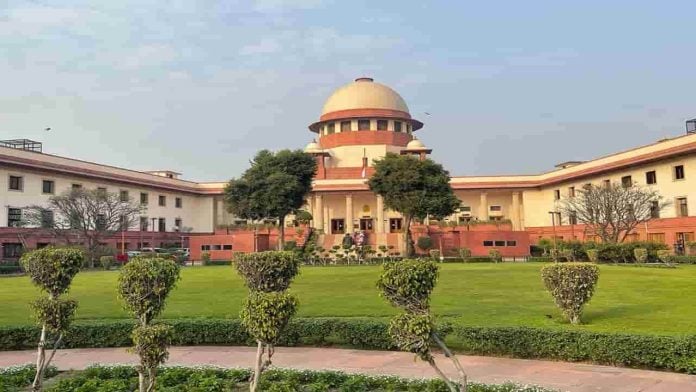The All India Backward Classes Federation has challenged the Supreme Court majority verdict of November 7 that upheld the validity of the 103rd Constitutional Amendment, which introduced provisions for 10 percent reservation to the Economically Weaker Sections (EWS).
The five-Judge Constitution Bench of the Apex Court, comprising then Chief Justice of India (CJI) U.U. Lalit, Justice Dinesh Maheshwari, Justice S. Ravindra Bhat, Justice Bela M Trivedi and Justice J.B. Pardiwala had retained the 10 percent reservation to EWS.
While Justice Maheshwari, Justice Trivedi and Justice Pardiwala agreed to uphold the validity of the 103rd Constitutional Amendment, Justice Bhat refused to agree with the majority verdict and dissented on exclusion of SC/ST from 10 percent quota.
Then CJI Lalit agreed with Justice Bhat in the dissent. So, it was 3-2. But the EWS quota law was still upheld in view of the majority.
The review petition filed by Professor Mohan Gopal contended that the majority decisions rest on the mistaken assumption that EWS was structured solely on economic criteria.
He said an economically weaker section eligible for EWS was formed by two criteria: a) family income and other indicators of economic disadvantage and b) it shall not be OBC, SC or ST (i.e., it shall be part of the socially and educationally forward classes).
As per the plea, if EWS were to be based solely on economic criteria, then it should be available to all those disadvantaged in terms of applicable economic criteria (family income and other indicators of economic disadvantage) with priority going to those more disadvantaged. However, it was available only to sections with forward class characteristics.
The plea said that EWS guaranteed reservation for upper caste/forward classes, with a creamy layer exclusion. It was more of a social or caste reservation, not just an economic reservation.
It further stated that Justice J.B. Pardiwala and Justice Bela M. Trivedi had erroneously referred to OBC, SC and ST reservation as caste-based reservation. A caste can be a class, but a backward class cannot a caste.
Also Read: Demonetisation: Supreme Court reserves judgement on petitions challenging Centre’s 2016 decision
The plea said that all castes and communities, transcending caste, religion, region, gender and language, which met the stipulated criteria, were entitled to be included in the list of backward classes and to reservations on that basis.
DMK had also filed a review petition against the verdict in November.


